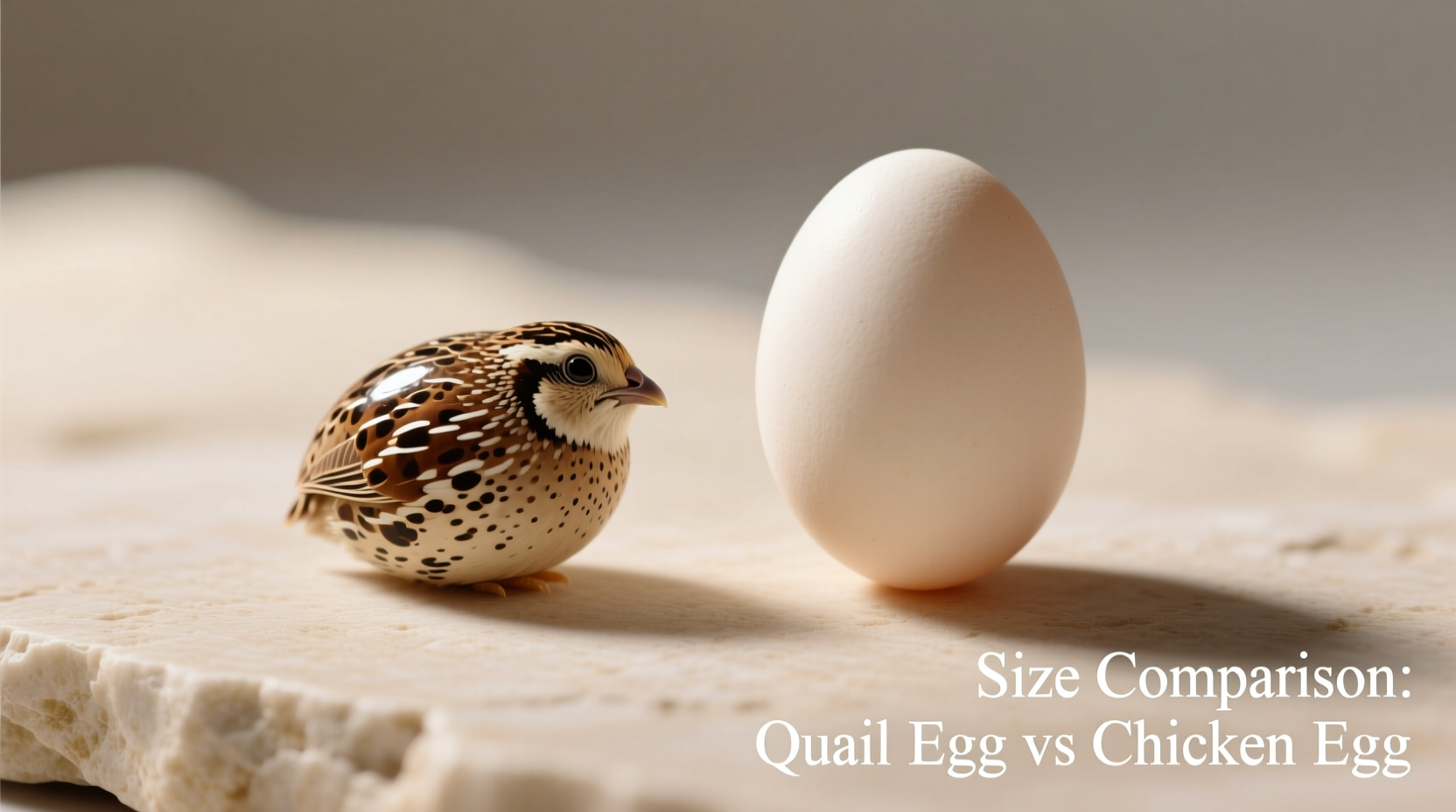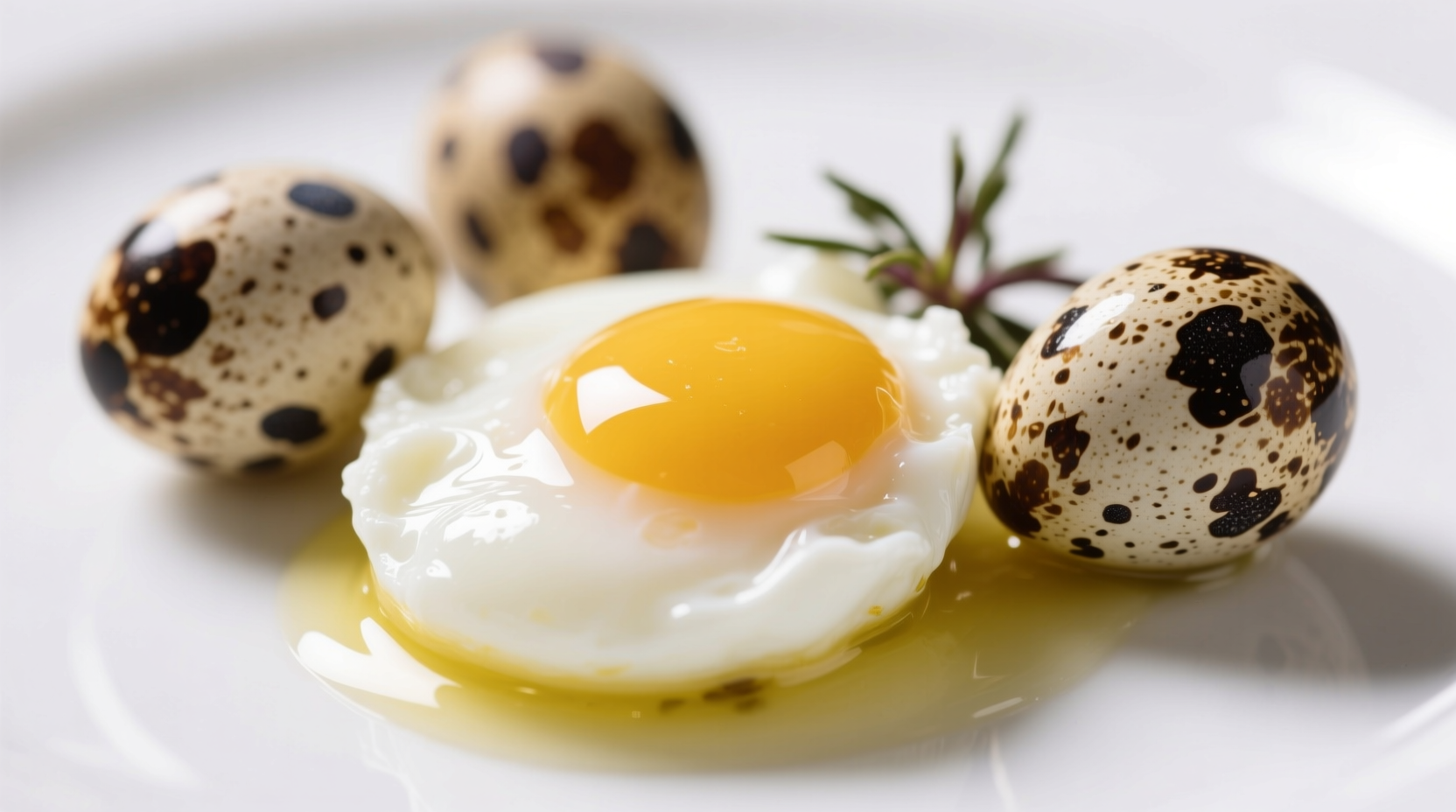Your First Encounter with Quail Eggs: Beyond the Tiny Shell
When you crack open your first quail egg, you're in for a sensory experience that differs noticeably from the standard chicken egg. The smaller size (about one-third of a chicken egg) belies a flavor punch that surprises many first-time tasters. Professional chefs and food scientists confirm that quail eggs deliver a more concentrated egg flavor with subtle earthy notes that many describe as 'elegantly gamey' without being overpowering.
Unlike the common misconception that quail eggs taste radically different, they maintain the fundamental egg essence while offering distinct characteristics. The flavor difference stems primarily from the quail's natural diet and faster metabolism, which concentrates flavors in their smaller eggs. Food chemistry research from the USDA Agricultural Research Service shows that quail eggs contain higher concentrations of certain fatty acids that contribute to their distinctive richness.

Deconstructing the Quail Egg Flavor Profile
The taste experience of quail eggs unfolds in layers that become apparent as you eat them. Understanding these components helps explain why they've become prized by chefs worldwide:
- Yolk intensity - The yolk-to-white ratio is significantly higher in quail eggs (about 35% yolk versus 30% in chicken eggs), creating a noticeably creamier mouthfeel and richer flavor
- Subtle gaminess - A mild earthy note that some compare to free-range chicken eggs but more pronounced
- Sweet undertones - Many tasters detect a slight natural sweetness absent in standard eggs
- Texture contrast - The firmer white provides a delicate textural counterpoint to the luxuriously creamy yolk
This flavor complexity makes quail eggs particularly valuable in dishes where egg flavor shines through, rather than gets masked by other ingredients. Culinary professionals note that the higher yolk concentration means quail eggs create more vibrant sauces and custards with less liquid adjustment than chicken eggs.
Quail Eggs vs. Chicken Eggs: A Practical Comparison
Understanding the specific differences helps determine when quail eggs might enhance your cooking versus when chicken eggs remain preferable. The table below presents verified characteristics based on USDA nutritional data and professional culinary evaluations:
| Characteristic | Quail Eggs | Chicken Eggs |
|---|---|---|
| Flavor intensity | Richer, more concentrated egg flavor | Milder, more neutral |
| Yolk-to-white ratio | Approximately 35% yolk | Approximately 30% yolk |
| Texture (yolk) | Creamier, more buttery | Firmer when cooked |
| Aftertaste | Slightly earthy, minimal | Neutral to slightly sulfurous |
| Best culinary uses | Garnishes, delicate sauces, bite-sized appetizers | General cooking, baking, scrambles |
Cooking Techniques That Enhance Quail Egg Flavor
How you prepare quail eggs significantly impacts their final taste. Professional chefs emphasize that gentle cooking methods preserve their delicate flavor profile:
Perfect soft-boiled preparation: Simmer for exactly 2 minutes and 30 seconds for a custard-like yolk with tender white. This method showcases the creamy texture that makes quail eggs special. Overcooking creates a rubbery texture that masks their natural richness.
Scrambled technique: Cook over extremely low heat with constant stirring. The smaller size means they cook faster than chicken eggs, requiring precise timing to avoid toughness. Adding a splash of cream enhances their natural richness without overwhelming the delicate flavor.
Flavor pairings that work best:
- Truffle oil (complements the subtle earthiness)
- Fresh herbs like chives or tarragon (enhances without overpowering)
- High-quality sea salt (brings out natural sweetness)
- Avocado (creates a luxurious texture combination)
Selecting and Storing for Optimal Flavor
Freshness dramatically affects quail egg taste. Unlike chicken eggs with their protective cuticle, quail eggs have more porous shells that absorb flavors and lose moisture faster. For the best tasting experience:
- Look for eggs with clean, uncracked shells and minimal speckling (excessive speckling can indicate older eggs)
- Refrigerate immediately upon purchase (they spoil faster than chicken eggs at room temperature)
- Use within 14 days for optimal flavor (versus 21-30 days for chicken eggs)
- Store in their original carton away from strong-smelling foods (they absorb odors easily)
Food safety experts from the FDA Food Safety and Inspection Service confirm that properly handled quail eggs present no greater food safety risks than chicken eggs, though their smaller size requires adjusted cooking times to ensure safety.
When Quail Eggs Shine in Culinary Applications
Chefs worldwide leverage quail eggs' distinctive flavor in specific applications where their characteristics provide advantages over chicken eggs:
- Appetizers and canapés - Their small size creates elegant single-bite presentations
- Asian cuisine - Particularly in Japanese and Korean dishes where their rich flavor complements delicate broths
- Salad garnishes - Halved soft-boiled quail eggs add visual interest and flavor bursts
- Specialty omelets - Where concentrated egg flavor is desired without excess liquid
However, for baking or dishes requiring large quantities of eggs, chicken eggs remain more practical and cost-effective. The distinctive quail egg flavor would be lost in most baked goods, making the higher cost difficult to justify for these applications.
Do quail eggs taste fishy or overly gamey?
No, properly handled quail eggs should not taste fishy or strongly gamey. They have a mild earthy note that some describe as similar to free-range chicken eggs but more pronounced. Any fishy taste indicates the eggs are no longer fresh or were improperly stored.
Are quail eggs more flavorful than chicken eggs?
Yes, quail eggs generally have a more concentrated, richer flavor due to their higher yolk-to-white ratio and the quail's natural diet. The flavor is often described as creamier with subtle earthy notes, making them particularly valuable in dishes where egg flavor should shine through.
How does cooking method affect quail egg taste?
Cooking method significantly impacts quail egg flavor. Gentle methods like soft-boiling (2.5 minutes) preserve their delicate creaminess, while overcooking creates rubberiness that masks their natural richness. They cook faster than chicken eggs due to smaller size, requiring precise timing for optimal flavor.
Why do quail eggs taste different from chicken eggs?
The flavor difference stems from several factors: quail's natural diet produces different fatty acid profiles, their faster metabolism concentrates flavors, and the higher yolk-to-white ratio (35% vs 30%) creates a creamier texture. Food chemistry research shows these biological differences result in more intense egg flavor with subtle earthy notes.











 浙公网安备
33010002000092号
浙公网安备
33010002000092号 浙B2-20120091-4
浙B2-20120091-4